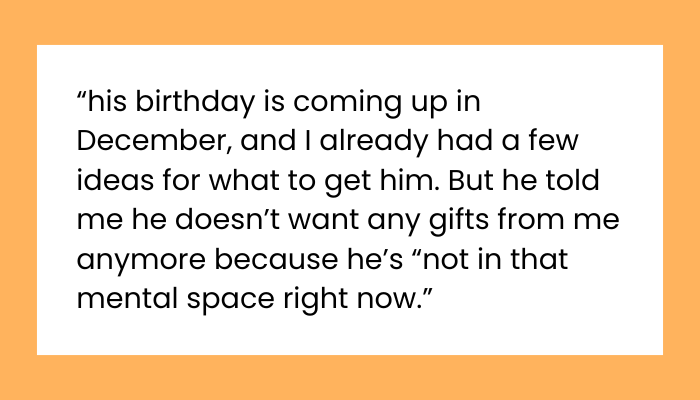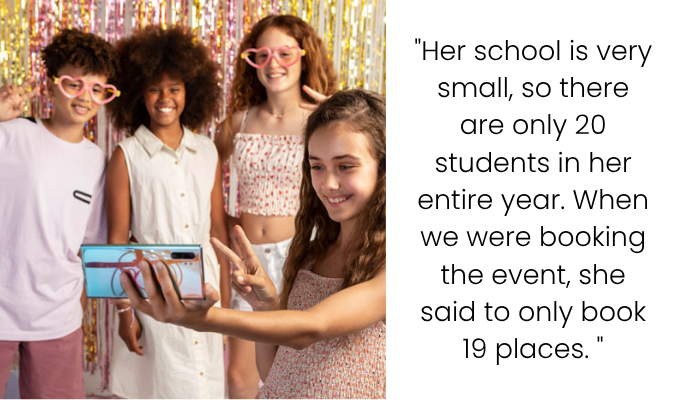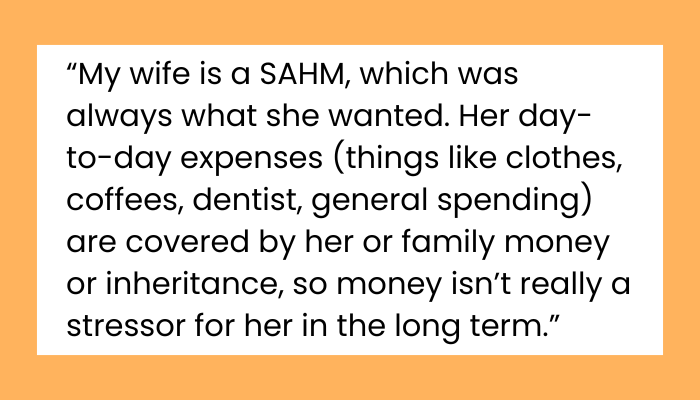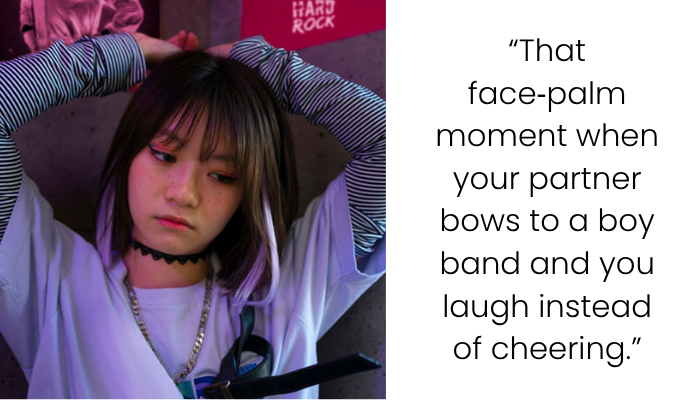Girlfriend Forces Her Love Language on Boyfriend, Loses It When He Refuses Her Gift
You and your boyfriend have made it two years together—a relationship that’s had its share of hard moments but also growth and choosing each other. For your anniversary, you respected his wish for something low‑key, yet you still gave a gift that means a lot to you: a handmade seashell heart on canvas, a letter and chocolates. He replied later that he loved the gift. But the canvas is still sitting in the paper bag, untouched on the wall. When you asked if he’d hang it and send a photo, he pushed back: “When you gift someone something … you’re not supposed to force them to use it.”
So you’re left feeling hurt and a bit rejected. It matters to you because gift‐giving is your love language, because you put thought and emotion into it, and because the “using” of the gift (hanging it on the wall) feels like its meaning being recognised. At the same time, you want to respect his mental/emotional space and his request to not do “big” gifts right now.
You’re wondering: Are you the asshole for asking him to hang the gift? Were your expectations unreasonable? Was his reaction valid?
— I don’t think you’re the asshole. You’re navigating a mismatch of emotional languages and needs. The rest of this mid‑view dives deeper into that: gift expectations, love languages, mental space, communication, and how you can move forward.
A gift should come with no expectations or strings attached, or else it might leave the other person feeling pressured

The poster explained that since her boyfriend had been struggling mentally, he didn’t want to do anything big for their second anniversary









This part gets a bit long because when you’re dealing with hurt feelings, unspoken expectations, and different emotional needs, it helps to try unpacking the psychology, research and relational dynamics. Bear with me.
1. Gift‐giving as love language & what “use” means
You mention that gift‐giving is your love language: you like giving and receiving meaningful tangible items, you keep tickets, confetti, memories, and so on. That means when you give a gift, you’re not only giving an object but also a message: “I remember this day. I remember you. I care. I want a place for this memory in your life.”
Research supports that gifts in romantic relationships carry more than their surface value. For example, one paper argues “gifts are a particularly suitable form of expressing feelings of affection and intimacy” in romantic settings. ResearchGate+1 Also, research on love languages shows that when your partner realises they’re being “seen” in the way you prefer (giving/receiving tangible tokens) you feel more satisfied. PMC
But—and this is key—what “use” or “display” means will differ for two people. For you the hanging on the wall might be the “closure” of the gift: that it’s now part of his space, part of your story together. For him? Maybe he sees the gift accepted (he thanked you) and doesn’t feel the need to “use” it in a visible way. That’s not necessarily wrong—it’s just a different emotional map.
In gift research, there’s a concept of “giver preferences vs receiver preferences.” The giver might prefer something impressive, or that signals strong love; the receiver might prefer something more feasible, usable, less “effort required.” som.yale.edu So him not hanging it could simply mean: he accepted your love, but the “display on wall” part doesn’t feel necessary to him.
2. Cause of hurt feelings: mismatched expectations
You’re hurt—and understandably so. You gave something meaningful, you asked for a small recognition of that meaning (hang it, send a pic) and he pulled back. That creates a gap: your expectation (hang it) vs his execution (bag shelf). And that gap causes pain.
From the research: many people do expect a gift to show signs of its use or display, especially when the gift is symbolic of a relationship. Giving gifts “helps form bonds and foster relationships” and the meaning of the gift is often tied to its visibility and integration into the recipient’s life. moo.com+1 Also, one survey found 37% of people feel gift‐giving puts too much pressure on romantic relationships—the very act carries heavy emotional weight. DatingNews.com
So your hurt is valid: you gave something with meaning, you hoped for recognition of that meaning. The problem lies in the mismatch between what you hoped for and what he was ready to give. It’s not a betrayal—it’s misalignment.
3. His perspective: mental/emotional space + autonomy
You also mention he said he’s “not in that mental space,” that he didn’t want “big gifts” and now doesn’t want any gifts from you because he’s dealing with his own stuff. That is a real factor. If someone is struggling emotionally, what they can or want to do in relationships might look different.
From his side:
- He asked to keep things low‐key for the anniversary (so he is signalling “please keep things simpler”).
- He accepted the gift (he said he loved it). That shows he appreciates it.
- He doesn’t hang the gift, and objects to you asking him to do so (he views hanging as a demand).
- He now says he doesn’t want gifts.
From your side: You’re trying to respect his space—but you’re still sad, because this is your first relationship, and this is your “language.”
So do you force him to hang something? No. But can you express how you feel and ask for something that acknowledges your gesture? Yes. The key is communication of how important the “display” is for you, and listening to what “displaying” might feel like for him. Maybe hanging it publicly or visibly is too much right now; maybe storing it somewhere private is his way of “holding it.” Or maybe he genuinely doesn’t understand the deeper significance for you.
4. What is “using” or “displaying” a gift, and why might someone hesitate?
Let’s look at some reasons he might hesitate:
- Personal style / space constraints: Maybe he doesn’t have the wall space, or feels the gift doesn’t fit his decor, or wants to wait until he sorts his room.
- Emotional readiness: If he’s emotionally struggling, the reminder of a complicated year or the significance of a “relationship symbol” might feel heavy. Hanging the gift could feel like “committing” to something he feels uneasy about.
- Different love language: Gift‐giving might not be his primary love language—he might prefer acts of service, words of affirmation, or quality time. If that’s the case, he might feel the gift is nice, but doesn’t require the same kind of visible display.
- Perception of obligation: His comment “you’re not supposed to force them to use it” suggests he sees your request as pressure. He might feel your request turns something generous into something with strings attached.

From a research lens: there are studies about the “feasibility” of gifts—the idea that a practical, usable gift often makes the recipient happier than a flashy but less usable one. som.yale.edu+1 In your case, your gift is usable (hanging art), but the “use” part (him actually making it part of his space) falls in the gap between your expectation and his comfort.
5. Relationship maintenance & communication
Since you’re still in relatively early relationship territory (two years is meaningful but still young) and you’ve had a “difficult year,” the way you communicate about this matters a lot.
Here’s what you might consider:
- Express your feelings: Tell him gently: “It means a lot to me that you accepted the gift and said you loved it. For me, seeing it on your wall would make me feel like our memory is part of your life too.” Avoid putting blame (“you never hang things”), use “I” statements.
- Ask for his view: “I’m wondering how you see the gift now? Do you like it? Would you like to hang it? If not, is it okay if I keep it somewhere else knowing you appreciated it anyway?”
- Respect his boundaries: If he says he’s not ready for it, don’t take it as rejection of you or the gift—but as his current state. Perhaps ask if he might revisit it later.
- Find a middle ground: Maybe the picture doesn’t need to hang permanently now—but could sit somewhere visible for him, or he might photograph it and share. Or you could choose a place together later.
- Redirect your expectations: Since your love language is gift‐giving and his may not be, you might benefit from translating your “gift display” need into other forms he’s comfortable with (e.g., spending a memory‑building day together, creating an experience). Research shows experiential gifts often strengthen relationships more than material ones. UCLA Anderson School of Management
- Accept emotional space: He’s said he’s not in the mental space for gifts right now. That means your next steps (gift for his birthday, etc.) will need sensitivity. A small heartfelt gesture might be better than a “big” gift. Ask him what he would feel comfortable with.
6. Are you the asshole for asking him to hang it?
Short answer: No — you’re not the asshole for asking. You asked a simple extension of what the gift represented to you. The question is whether you insisted or pressured him. If you did, that might fall into “a bit of misstep.” It sounds like you asked “a few times” which suggests you’ve been gentle.
That said, the issue becomes more about the dynamic: whose emotional needs are being addressed, and how well you’re communicating with each other. If you repeatedly ask despite his clear discomfort, it might become a source of tension. But simply asking once or twice is fine.
Bottom line & what to do next
- Your feelings matter. You put meaning into the gift and what it means for you to see it displayed.
- His feelings matter. He accepted the gift, but may not be emotionally or physically ready to display it (and he might view your request as pressure).
- The mismatch in love languages and emotional readiness is the root here, not a moral failing on either side.
- Action steps: Communicate openly, ask him how he feels about the gift and what “displaying” it would mean for him, and respect his space while gently sharing your need. Maybe delay the “hang it now” ask until he’s in a better space.
- For his birthday: Since he’s asked for no gifts, consider a “gift” that’s low‑key but meaningful—something you know aligns with how he is comfortable (an experience, a simple handwritten note, something you do together).
- Going forward: Since your love language is gift‐giving and his may differ, you can both talk about what each of you needs to feel loved and appreciated, and find a middle ground.
You’re not in the wrong for wanting recognition of your gesture. Neither is he in the wrong for how he’s handling it. The golden path now is connection, not guilt or resentment. If you can talk this through with empathy—him for your love language, you for his space—you’ll build something stronger from this.
Most people didn’t like the poster’s gift and felt that she had selfishly given it to her boyfriend because it was something that gave her joy














